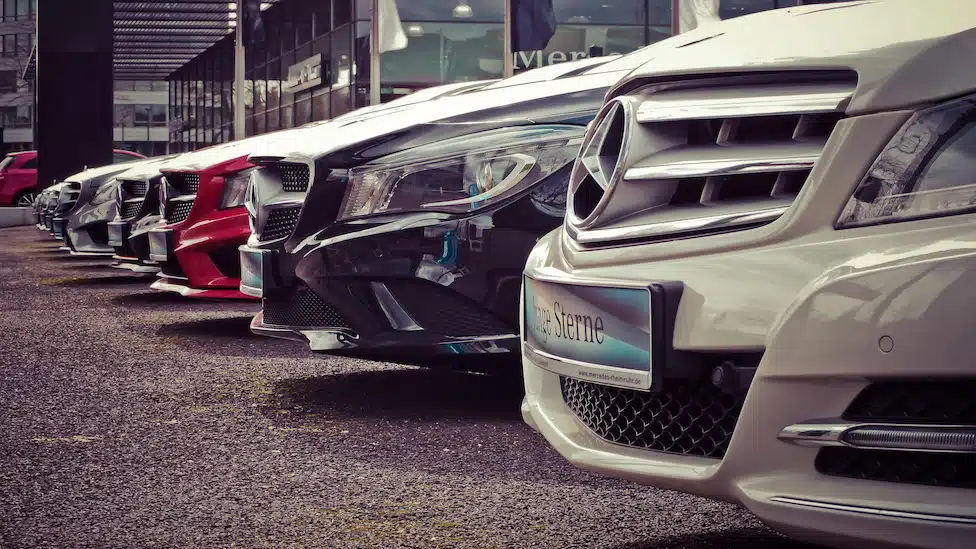How Trump’s Auto Tariffs Could Hurt His Working-Class Supporters: U.S. President Donald Trump is set to penalize many working-class buyers by imposing a 25% tariff on all imported vehicles. They are helping to decide to purchase affordable new cars in the U.S. even less likely.
Therefore, Trump’s Auto Tariffs could drive prices even higher, affecting poorer people. With fewer cars under $30,000 and the cost of used cars predicted to increase further, families relying on affordable vehicles will feel the pinch.
The tariffs could raise the prices of new vehicles and boost demand — and thus prices — for used cars, making them even less affordable.
Also Read | Trump’s Bold 25% Car Import Tariff: What It Means for the Auto Industry and Consumers
How Trump’s Auto Tariffs Could Hurt His Working-Class Supporters: Insights
- Making your vehicle last as long as possible is vital since new cars under $30,000 are few and far between.
- The 25% Trump’s Auto Tariffs might increase the price of low-end vehicles.
- U.S. automakers could phase out affordable models.
- Increasing used-car prices will also worsen the plight of low-income purchasers.
- Trump’s base of working-class voters may feel the most significant pain.
- Industry experts warn that this will hurt overall vehicle affordability.
Background
It’s getting hard to find an affordable new vehicle. With the average price of a new car now approaching $50,000, lower-cost models are being constructed more often overseas, particularly in Mexico, South Korea, and Japan.
Tariffs on imports have historically been designed to protect in-country industries, but in this instance, they may threaten affordable car prices by doing otherwise. These changes could significantly affect working-class Americans, an important demographic in Trump’s political base.
‘Congratulations, if you make your car in the United States, you’re going to make a lot of money. If you don’t, you’re going to have to probably come to the United States, because if you make your car in the United States, there is no tariff,’” Trump told Welker.

‘Congratulations, if you make your car in the United States, you’re going to make a lot of money. If you don’t, you’re going to have to probably come to the United States, because if you make your car in the United States, there is no tariff,’” Trump told Welker.
Photo Credits: Pexels.
Main Event
The U.S. car market is also experiencing Stevens’ 25% tariff on imported vehicles. There aren’t many cars under $30,000, and most are assembled overseas. Toyota’s Corolla, for example, is the only low-cost vehicle assembled in the U.S.; others come from Mexico, Japan, and South Korea. This tariff will raise prices, forcing more buyers to the used car market, where prices will likewise rise.
Burnis Carrington of Louisiana is already feeling it. He is car shopping, afraid that Trump’s Auto Tariffs will raise prices. The increasing cost of vehicles could ripple effect on household finances, particularly among lower-income car buyers who depend on budget-friendly types.
Trump’s backers, who earn under $50,000 annually in rural areas, could feel the brunt of those increases. While Trump thinks higher prices will mean more Americans buy domestic vehicles, experts say it will likely backfire on buyers. Car makers like G. M. already run very thin margins on low-end models, and the tariffs could put vehicles out of reach.
Ford and other manufacturers have shifted their production of economy vehicles overseas, leaving foreign brands dominating the economy car market. Since so many of the most affordable vehicles have been made in Mexico and South Korea, the new Trump’s Auto Tariffs could eliminate any chance they will be cheap for low-income Americans.
As car prices rise, families may have no choice but to prioritize other expenses, postpone major purchases, or allow aspirants to spend less on cars.

Trump denied pressuring automakers to control costs after tariffs, saying, “I couldn’t care less if they raise prices.”
Photo Credits: REUTERS.
Also Read | Tesla’s Number 1 Rival Is Taunting Elon Musk: Is This An EV Game Changer?
Implications
The implications of these tariffs could be far-reaching. Middle-class families who purchase more modestly priced cars will see increases. Companies in the car business could have a tough time, too. There could be fewer sales, especially of foreign-made vehicles, due to the reduced availability of affordable cars.
The public might then turn to used cars, which would increase prices there, too. And this could change how Americans spend their household budgets, with less money for other essentials.
Conclusion
Trump’s Auto Tariffs aim to protect U.S. automakers but could hurt his working-class base. The increase in car prices may complicate affordability for many buyers. This could cause a massive potential upheaval in the car market with increased demand for used cars and a price spike.
We don’t yet know the full consequences, but one thing seems evident: The working class could get hit hardest in the wallet.
Also Read | Elon Musk Joins White House in Signal Chat Leak Investigation



